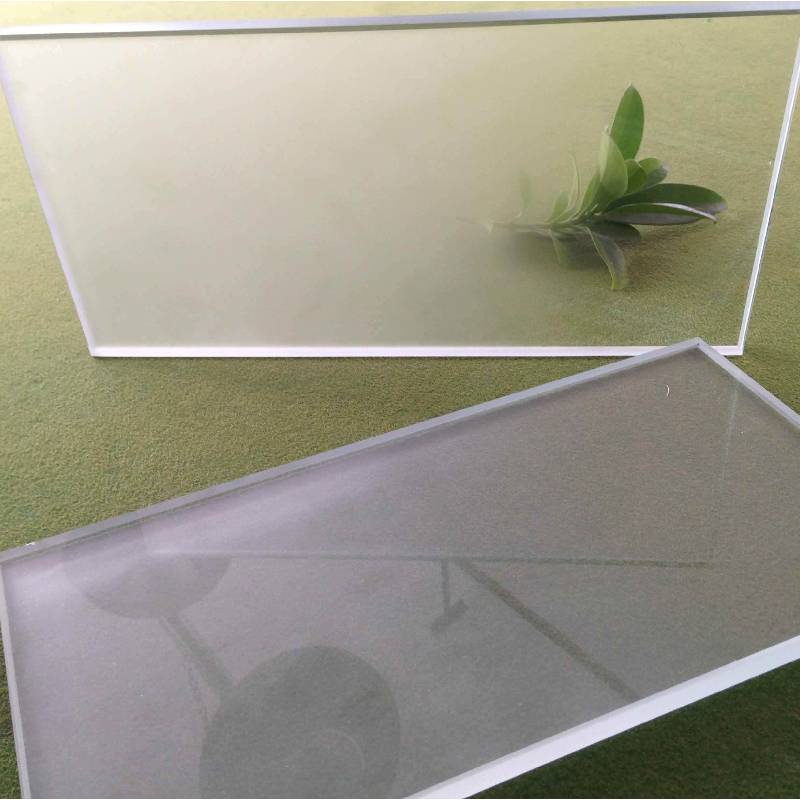

Laminated Insulated Glass Units A Comprehensive Overview
In architecture and construction, glass has evolved from merely being a transparent barrier to becoming a multifaceted solution that enhances aesthetics, energy efficiency, and safety. Among the various types of glass available, laminated insulated glass units (LIGUs) stand out due to their unique composite structure and the myriad benefits they offer.
Understanding Laminated Insulated Glass Units
Laminated insulated glass units are composed of two distinct technologies laminated glass and insulated glass. Laminated glass is created by sandwiching a layer of Polyvinyl Butyral (PVB) or Ethylene Vinyl Acetate (EVA) between two or more layers of glass. This construction not only adds strength but also dramatically improves safety. In the event of breakage, the laminated layer holds the glass fragments in place, minimizing the risk of injury from flying shards.
On the other hand, insulated glass units (IGUs) consist of two or more glass panes separated by a spacer and sealed to create an airtight space filled with gas, usually argon or krypton. This structure limits heat transfer, thus enhancing thermal performance and energy efficiency.
When combined, laminated and insulated technologies form laminated insulated glass units, which incorporate the safety features of laminated glass with the thermal efficiency of insulated glass. The result is a product that addresses modern demands for safety, comfort, and sustainability.
Key Benefits of Laminated Insulated Glass Units
1. Enhanced Safety and Security One of the primary advantages of LIGUs is their ability to provide enhanced safety. The laminated layer effectively holds the shards of glass together upon impact, reducing the risk of injury. This feature also acts as a deterrent to break-ins, making LIGUs a popular choice for commercial buildings and high-security areas.
2. Thermal Efficiency With rising energy costs and growing environmental concerns, the importance of thermal efficiency cannot be overstated. LIGUs are excellent insulators, helping to maintain consistent indoor temperatures and reduce reliance on heating and cooling systems. This quality not only lowers energy bills but also contributes to a smaller carbon footprint.

3. Acoustic Performance In urban areas where noise pollution is a concern, LIGUs serve as a significant barrier to external noise. The multiple layers and airspace within LIGUs can drastically reduce sound transmission, creating a quieter indoor environment.
4. UV Protection Laminated glass can block up to 99% of harmful ultraviolet (UV) rays. This protection is critical in preserving furniture, carpets, and artwork from fading, making LIGUs ideal for residential and commercial spaces where aesthetic integrity is essential.
5. Versatile Design Options LIGUs are available in various thicknesses, colors, and configurations, enabling architects and designers to create stunning visual features without compromising on performance. This versatility ensures that LIGUs can be tailored to meet specific vision and functional requirements.
Applications of Laminated Insulated Glass Units
The applications of LIGUs are diverse and widespread. In residential settings, they are commonly used in windows, sliding doors, and skylights, providing homeowners with enhanced safety, energy efficiency, and aesthetic appeal. In commercial buildings, LIGUs are utilized in curtain walls, storefronts, and facades, helping to create striking exterior designs while fulfilling strict safety and thermal regulations.
Moreover, LIGUs find applications in high-rise buildings, schools, hospitals, and coastal properties, where their performance characteristics are critical. They are also employed in specialty applications like sound studios and media rooms, where noise reduction is paramount.
Conclusion
Laminated insulated glass units represent a significant advancement in glass technology, merging safety, energy efficiency, and aesthetic appeal into one product. As building codes become more stringent and the demand for sustainable design solutions escalates, the use of LIGUs will likely continue to grow. Whether for commercial or residential applications, LIGUs offer an intelligent choice that meets modern demands for safety, comfort, and environmental responsibility, paving the way for a brighter, more sustainable future in architecture and construction.